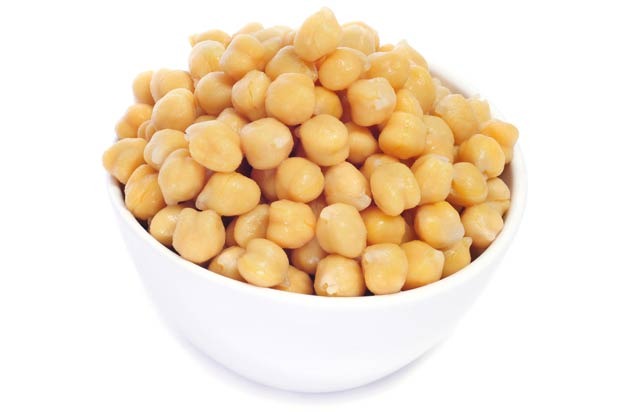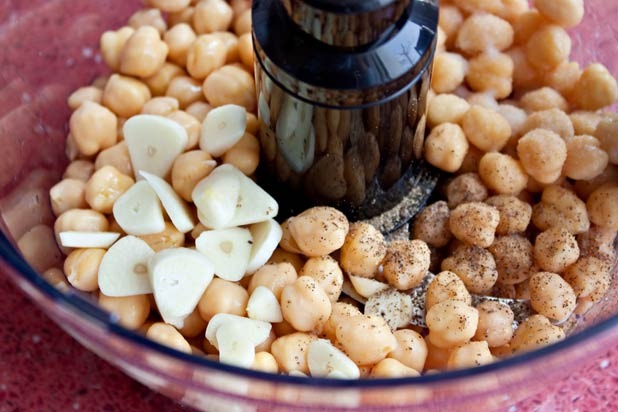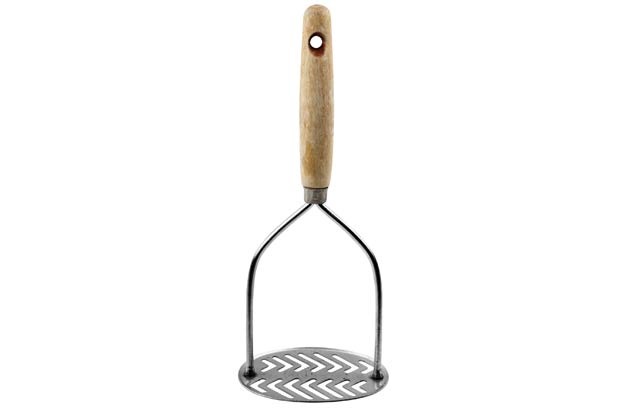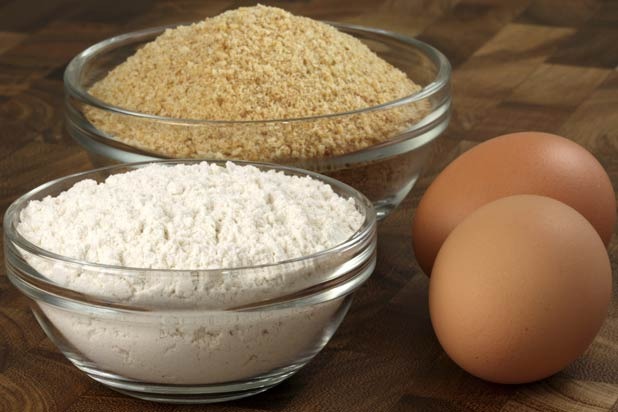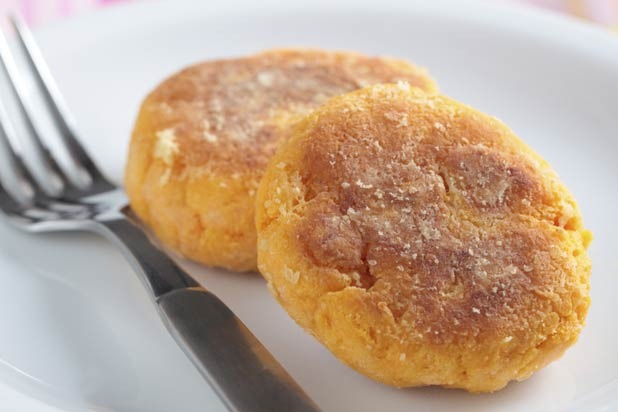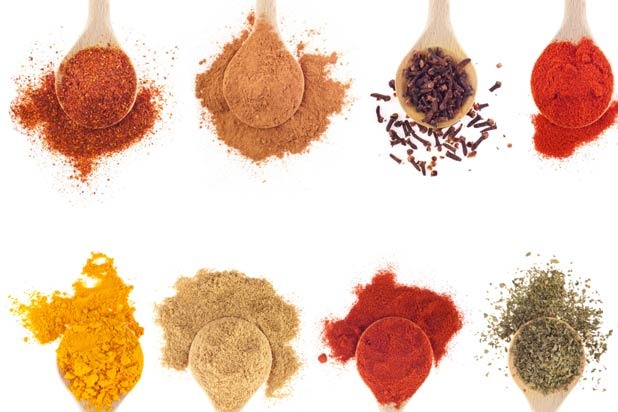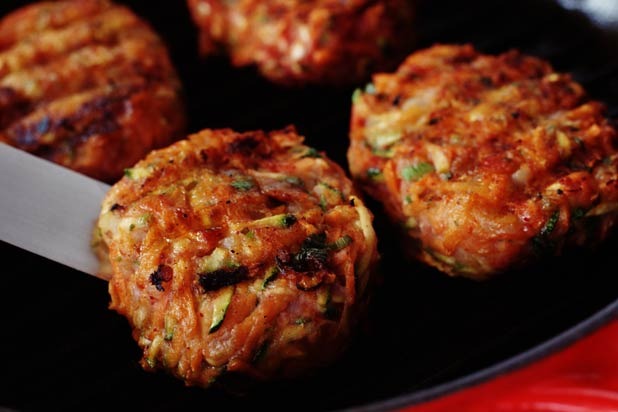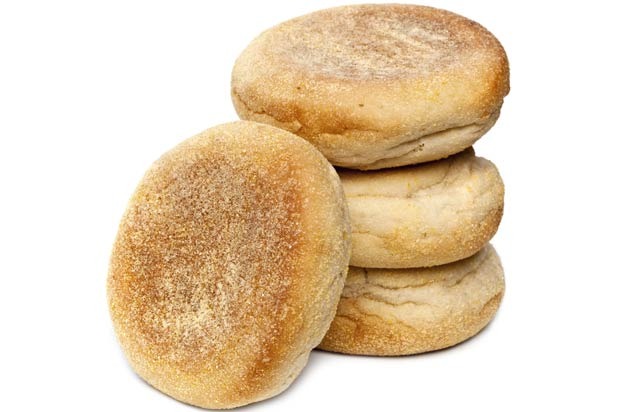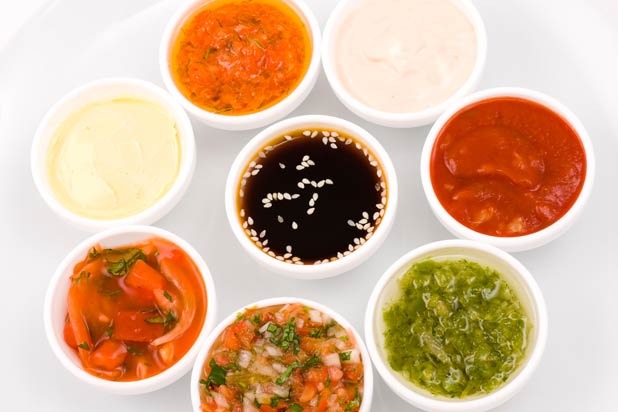How To Make A Veggie Burger That's Actually Delicious
O'Donnel tells us that legumes are a popular base for veggie burgers, and while she has no qualms with that, she recommends using fresh legumes over canned. Canned legumes are too soft to act as an efficient binding, and fresh ones, after being soaked and cooked, are the perfect consistency.
Chickpeas
Out of all of the meatless options there are to make a veggie burger, O'Donnel almost always goes with chickpeas. For her, chickpeas have the perfect level of starch to keep her burgers sturdy, and they're mild enough to absorb added flavors. That, and, they don't have to be cooked before processing, just soaked.
The Standard Process
Veggie burgers require an extra step when making them in comparison to their meat counterparts, because you've got to grind everything together yourself. O'Donnel explains the classic recipe as: food processing until the starch clumps together with the squeeze of a hand.
Get Your Potato Masher Out
O'Donnel uses a food processor to make her veggie burgers when she's short on time or making a huge batch of them, but she prefers her potato masher to blend together the batter. "The masher [blends] beans and cooked sweet potato but still leaves some texture," she says.
Binders
Unfortunately, veggie burgers are made without the fat and meatiness of a real hamburger, so they often have trouble staying together. O'Donnel recommends using binders such as eggs or breadcrumbs to help them stick together. Some other favorites of hers are all-purpose flour, ground oats, and cooked and mashed brown rice. She warns against using cornmeal, which can produce a gritty texture, and if you ever are in need of a vegan burger and don't want to use a binder, she says to let the patties set up in the refrigerator for at least two hours to help them maintain their shape.
Give It Some Life
One of the things we hate about any veggie burger we've ever made is that they're flat and lifeless. O'Donnel has a fix for that, though, because she adds a pinch of baking powder to her batter to provide a bit of leavening.
Be Liberal
O'Donnel was able to admit one negative thing about veggie burgers: they're pretty flavorless by themselves. So that's why she recommends being as liberal as possible when seasoning the batter. Her favorite seasonings include aromatics like onions and garlic, fresh herbs, and spices such as smoked paprika, ground cumin, coriander, dry mustard, and chipotle powder.
Leave Them Alone
It's time to start cooking, and this is often the biggest roadblock when it comes to veggie burgers. O'Donnel urges you to leave them alone after you toss them on the grill — they've got to cook long enough to set up their shape before you can flip them, so don't touch them before they're ready. Cooking times will vary depending on the grill you're using and the makeup of your burger, but you'll know they're good when they've got a nice, golden brown crust.
Think Outside the Bread Box
Choosing a bookend for your veggie burger cannot be boring, O'Donnel commands. She encourages you to think outside of the bread box when choosing a bun, and try to selections such as English muffins or potato rolls. Veggie burgers often lose their luster in a traditional hamburger roll, she says.
Make Your Veggie Burger Special
We're all about special sauces for our burgers this summer, and our veggie burgers will be no exception. O'Donnel says to leave the ketchup and mustard behind and try sauces like tahini, chumichurri, barbecue, herb pesto, romesco, and kimchi for finishing your burger.

